The Emperor
Sixty-five years later, Manfred Koller looks into his bathroom mirror and carefully applies some eyeliner. The 51-year-old bricklayer is leaning over the sink holding a small bottle of golden glitter with a pot of kohl and an eyeliner pencil nearby. In a few hours he will become "Emperor Fu-Gao-Di".
The emperor has a full day planned: a visit to a kindergarten, a lunch of traditional white sausage, a press reception and a podium gala. He picks up the pot of kohl and dabs a bit of colour into the corner of his eye.
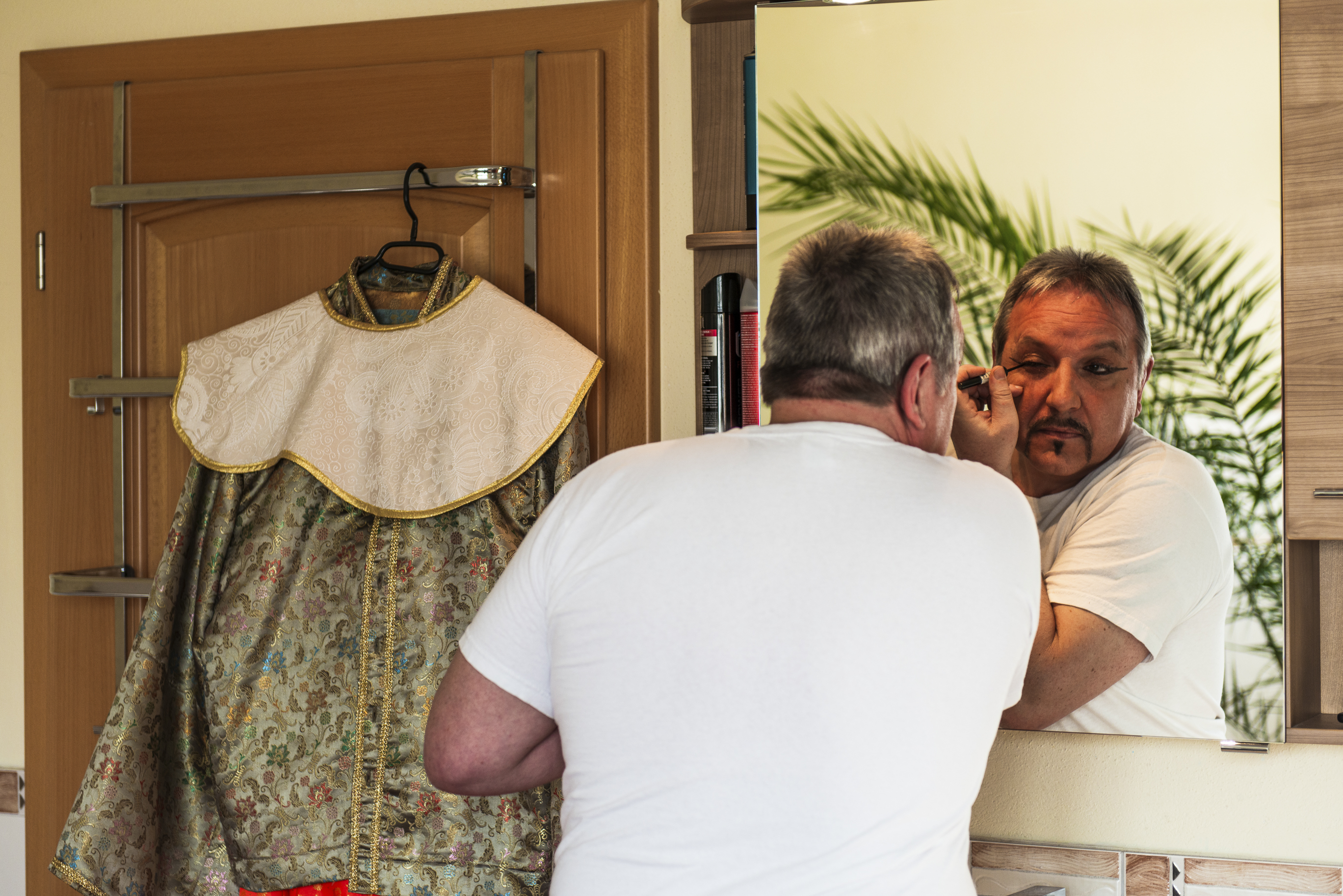
Koller putting on his makeup.
I ask him what he's doing. "I'm trying to make the shape of my eyes look like slits," he says. I see.
If he thinks it's awkward to paint on slitty eyes while I'm standing right next to him, he doesn't show it. "Have you ever stopped to think that you might be offending some people with all this?" I ask. "Nah, not at all, because it's just a way of emphasising facial contours, so it's not that bad," he says.
The emperor licks a cotton swab and fills in his facial hair – which is already shaped like a Fu Manchu beard – with black makeup. He finds this subject matter "a bit tough" to talk about. His intentions aren't bad, he says – on the contrary, in fact. "We think Chinese culture is very interesting," he says. "There's never been a real Chinese person who had a problem with it."
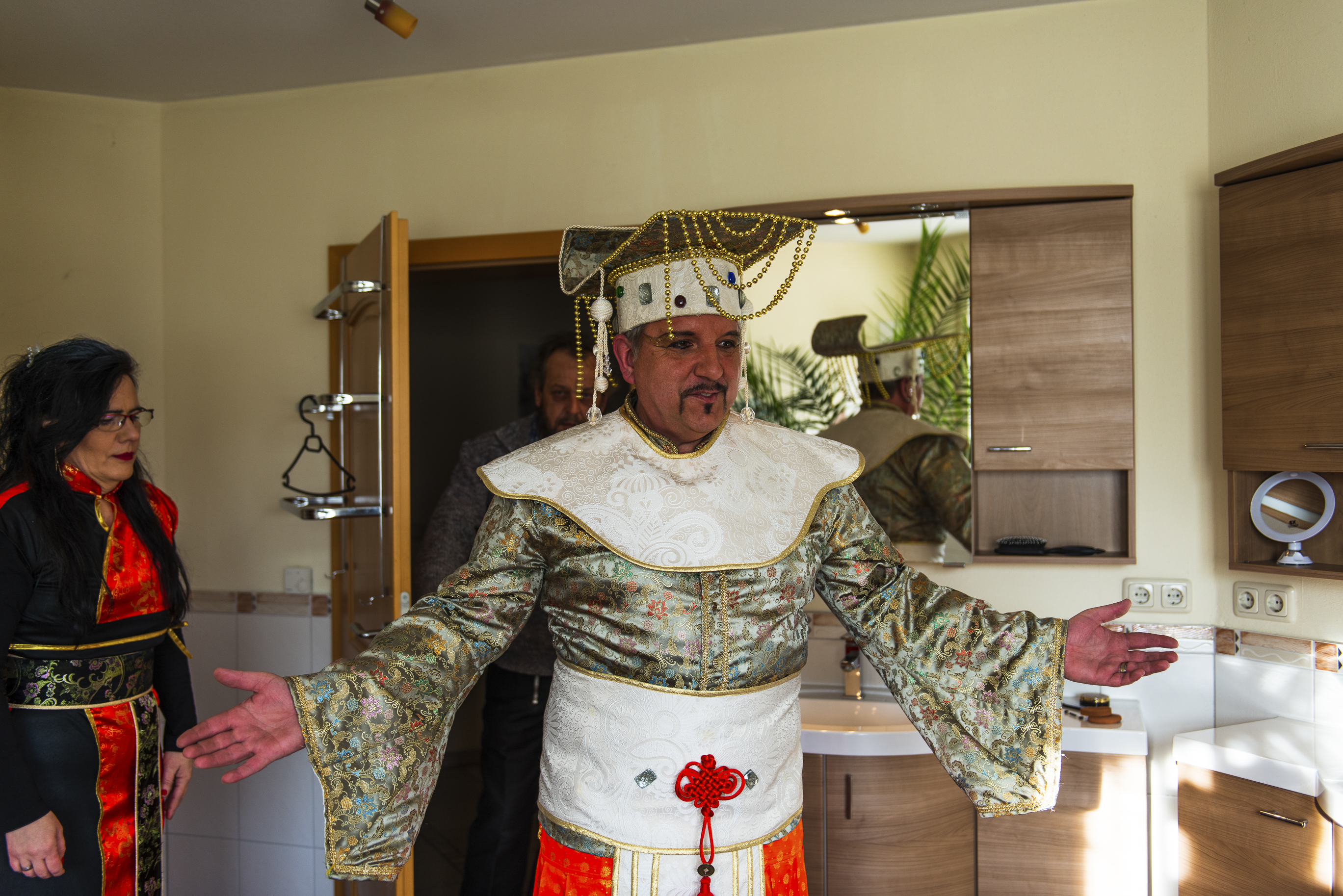
The emperor is ready.
The emperor believes he's making more of an effort to pay homage to Chinese culture by importing his costumes from China. When he can't, for whatever reason, he wears custom-made replicas.
In his "carnival corner", a sort of shrine to China, stands a stone statue of Guan Yu protected by three samurai swords. Guan Yu was an ancient general who is seen today as a symbol of strength. At first, the emperor claims the statue and swords were "a gift from China", but later admits "they're not from China, but they sure look like it".
For his emperor name he wanted something "authentic", he says. A Chinese friend helped Manfred do research and decided upon the name Fu-Gao-Di. "'Spot on,' I thought at the time. 'I can pronounce that!'" the emperor laughs.
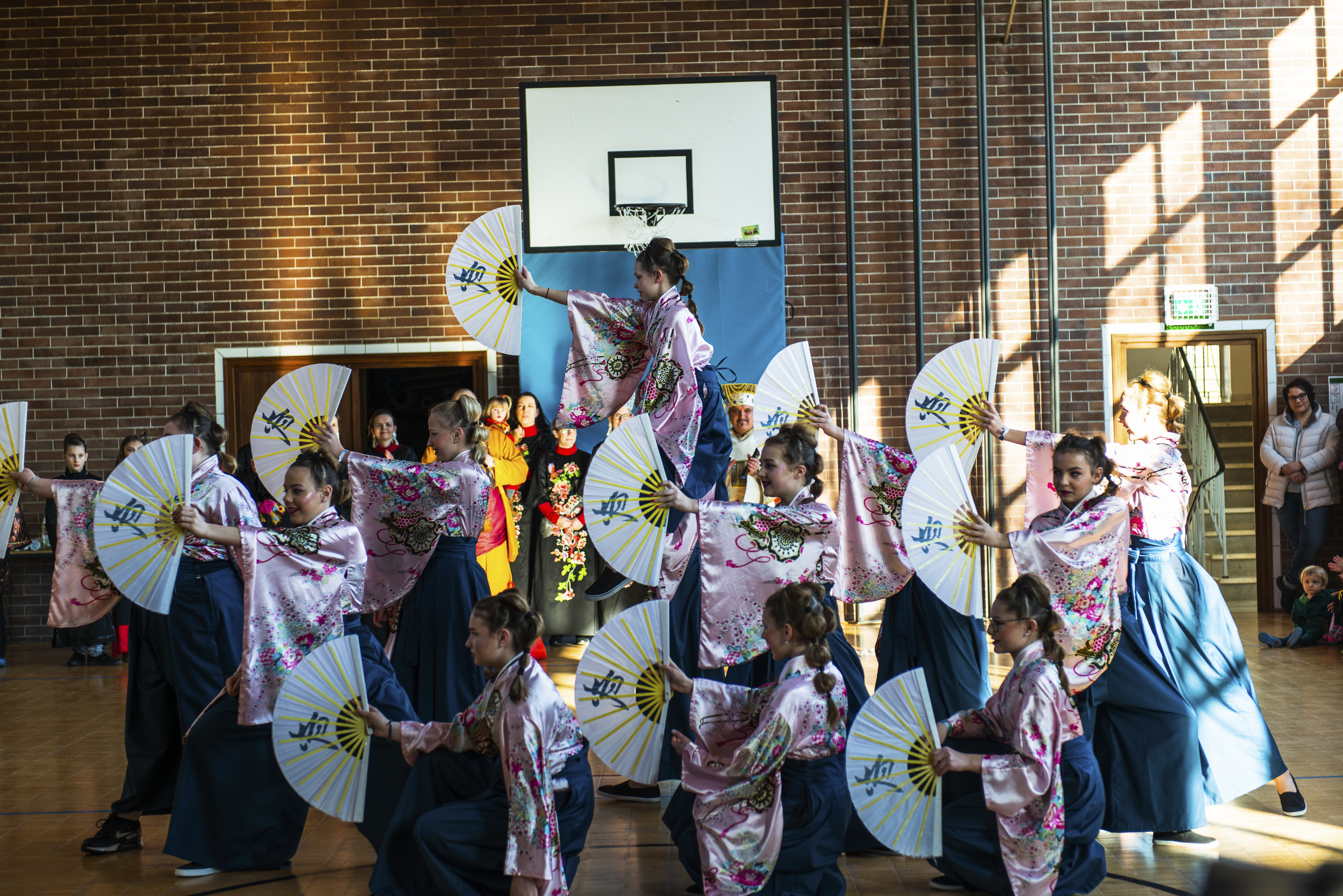
Dietfurt school children perform in a gymnasium.
Two hours later, the name roars through a school gymnasium. "Fu-Gao-Di! Fu-Gao-Di!" The gym is lined with Hulks, clowns and Princess Elsas.
"Greetings to you, my offspring!" the emperor roars into a microphone. The children scream "Fu-Gao-Di! Fu-Gao-Di!" in delight and stomp their feet on the floor. At the front door there are two Chinese camera crews capturing every moment of this display.
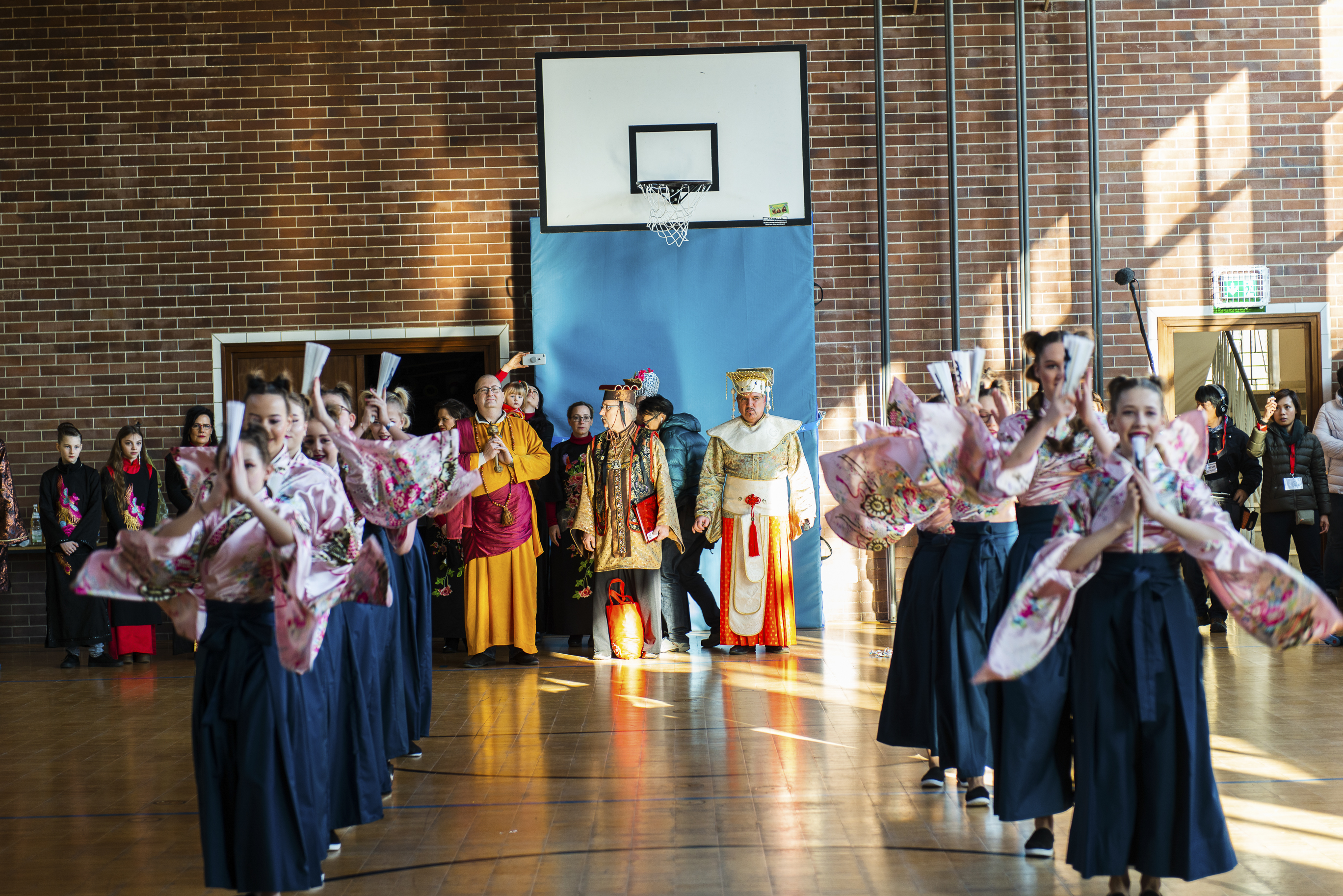
It's 11AM and a journalist from a local Bavarian TV station is besieging anyone who looks Asian to ask what what they think of the whole thing.
Next, it's time for a morning pint. The Sheippl Tavern is overflowing and smells of beer and fresh pretzels. I squeeze in at the emperor's table and greet him with a hearty "Ni hao!" He's wearing a golden robe and an oblong hat with pearls, which makes him look like a Bavarian version of the emperor in Mulan. He orders white sausage with mustard, which we share with a man dressed as a Buddhist monk.
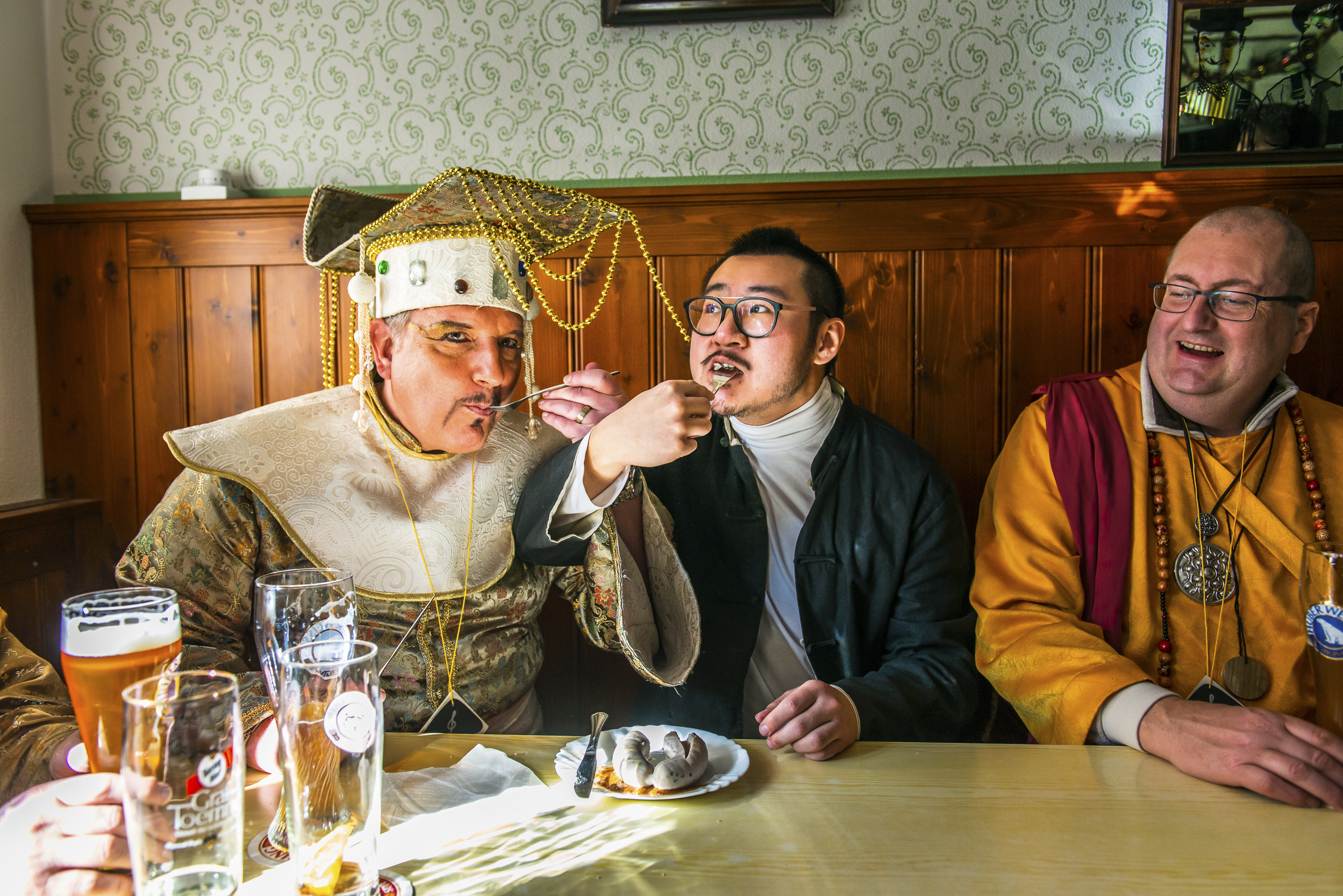
Enjoying some bratwurst with the emperor.
This doesn't really feel right, but it doesn't feel completely wrong either. Yes, the streets are teeming with visitors in yellowface and people dressed as Chinese caricatures. And yes, this is all clearly utter nonsense, justified with claims that no harm is meant. But at the same time, there are a few people from Dietfurt who are trying to make an honest effort. There's Pia, who works at the tourist office and brings speakers who are actually Chinese to take part in the festival. There's Horst, who is wearing a changshan, a traditional men's tunic that he bought in Beijing in 1996. There's Max, who spent 110 hours carving the dragon's crown for the emperor.
Dietfurt has a cultural partnership with the city of Nanjing, which holds a Bavarian-Chinese Friendship Festival every summer. The Chinese Consul General is invited to Dietfurt's Carnival every year. Of course, there is no excuse for yellowface, but deep down, in some parts of Dietfurt, there does seem to be a genuine appreciation of Chinese culture.
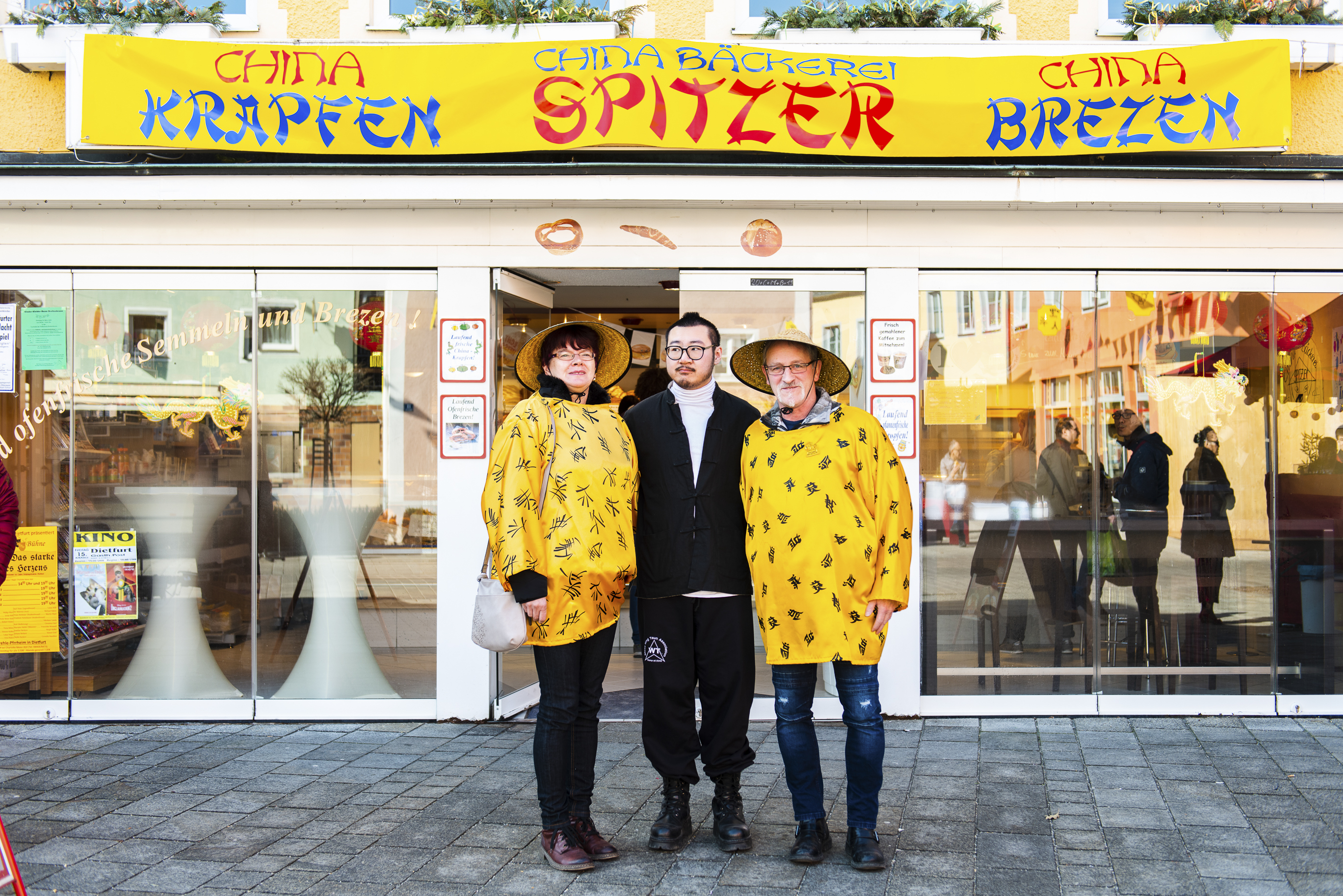
The Parade
By 1PM, the people of Dietfurt are out in full force. Next to me, a group of Chinese people from Munich take photos, astonished. "How can an entire town love Chinese people so much?" one of them asks me.
When the parade begins, it's so crowded you can hardly move. Soon, I'm being hit in the head with sweets thrown from floats to the crowd below. But I'm too much in the zone to be annoyed, and I roar back: "FU-GAO-DI!" The emperor is coming.
He climbs off his dragon float, makes his way up to his throne and starts reading from a golden book, telling the crowd about the eternal friendship that exists between China and Germany. Dietfurt goes ballistic.
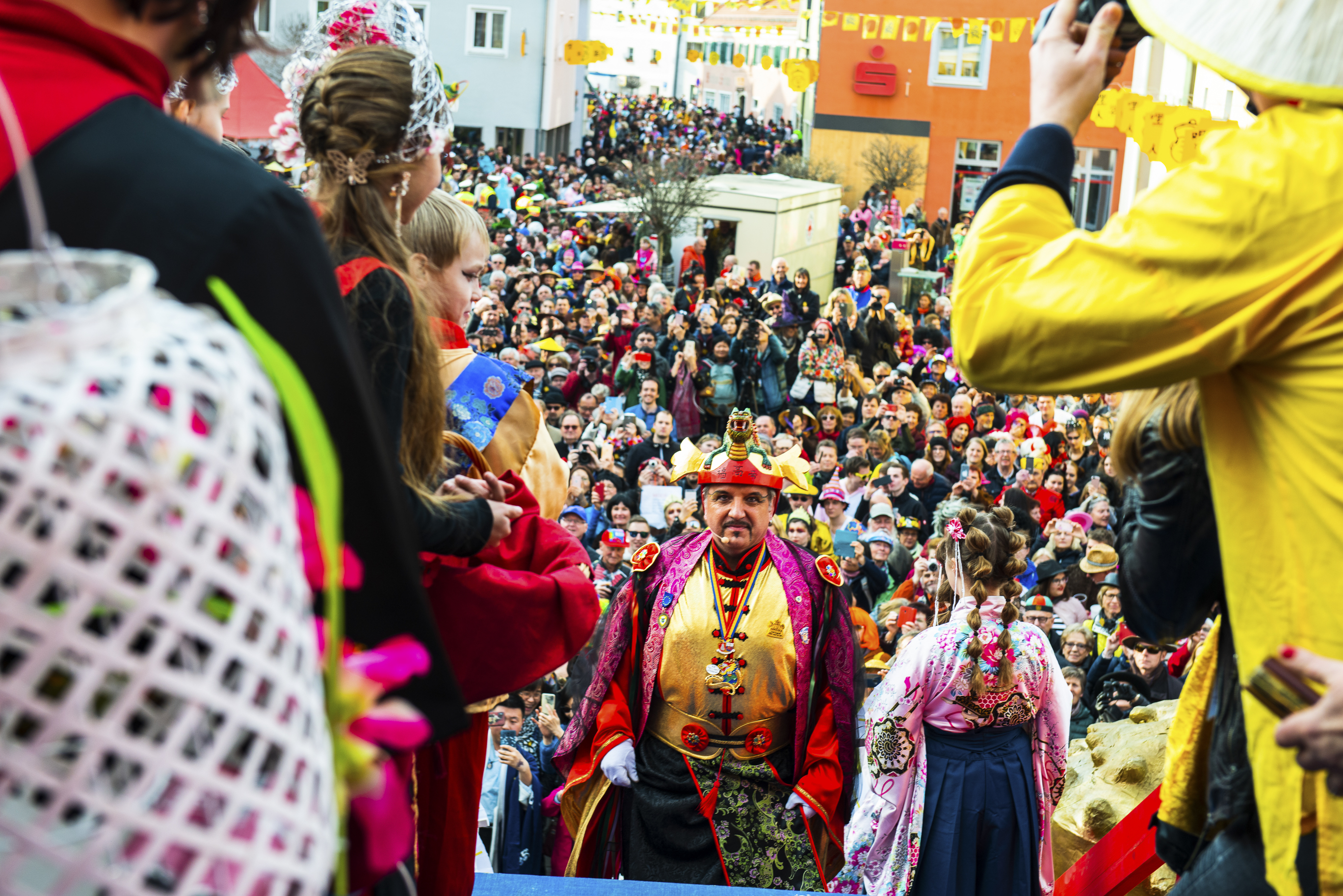
20,000 people turned up to greet the Emperor.
The next day, the town is recovering from a collective hangover. The streets are littered with noodles and broken glass bottles. I walk into a butcher's shop and bump into six drunk men who are still celebrating.
"Konnichiwaaa!" one shouts.
"Good god! A real Chinese person, what's he doing here?" another adds.
"You know, being Chinese isn't a very good costume," a third says.
Comments like these don't make me angry anymore, unfortunately. I know them all too well, which is exactly the problem. If you look different, racism remains a constant part of your life. The question is how you choose to live with it.
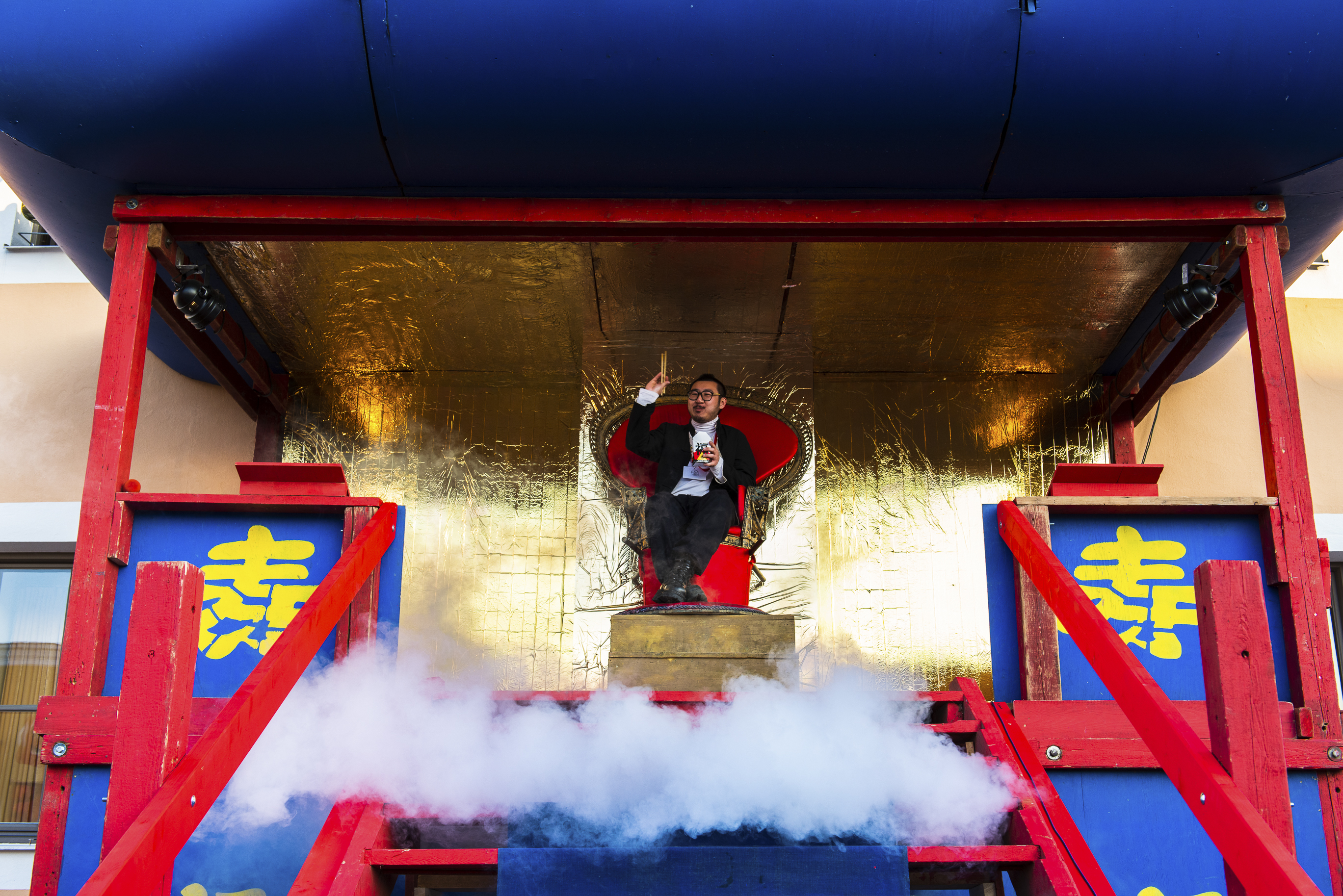
The author in his natural habitat.
For me, racism means writing people off based entirely on their origin or skin colour. Or when people think a "Chinese costume" consists of a kimono and chopsticks, "because it's all Asian anyway". But how devaluing is it when a whole city celebrates their perception of Chinese culture? Calling themselves Chinese, having a Chinese landmark in their town and regularly receiving guests from China?
In Dietfurt, I learned that intent and appreciation play a role in all of this. To me, there's a big difference between people who put on yellowface or wear a clumsy outfit, and those who show a genuine interest in Chinese culture. The qipao and changshan are traditional Chinese garments that aren't worn much anymore in modern China. Cultural appropriation? Maybe. But it's somewhat touching to see some people in Dietfurt more concerned with "my culture" than I am.
Yes, considerable portions of Dietfurt's Chinese carnival are racist, but that doesn't reflect on everyone taking part. I was welcomed warmly during the festivities – as a Chinese person, and as a human being in general. The racism I experienced didn't necessarily come from the people dressing up in awkward cultural clichés. It came from the people – often visitors from outside of town – who couldn't or didn't want to distinguish between what's fake Chinese and what's genuinely Chinese.
This article originally appeared on VICE DE.












 Reply With Quote
Reply With Quote